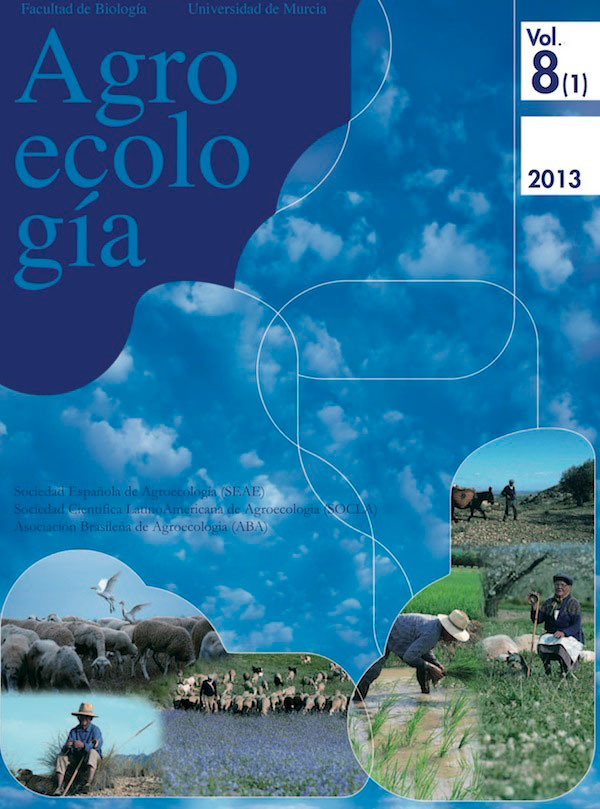Measuring socio-ecological resilience in a context of water scarcity using the Holistic Risk Index. Application in rural and indigenous communities in La Araucania, Chile
Abstract
This study pretends to contribute to the understanding of the complex relationships between environmental risks caused by climate change and the capacity of agricultural systems to resist these disturbances and persist without collapsing, in other words, the socioecological resilience. The level of socioecological resilience of agricultural systems in rural communities of the “Secano Interior” area in La Araucania, located in South-Central Chile, was evaluated using the concept of Holistic Risk Index (HRI). These communities are affected by water resource shortages and droughts. Ten variables related to threat, vulnerability and response capacity were identified. Field evaluations were performed on 73 farms classified in 4 groups based on their ethnic origin (Mapuche, Chilean, European settlers descendants) and the time living in the farm (Traditional Mapuche, resettled Mapuche). The assessment methods used included the generation of geographical information systems using secondary data, direct measurement, surveys, individual and group interviews. The values of HRI found ranged from medium (33%) to high (48%). Significant differences among the different ethnic groups of farms were detected. The Mapuche and European settlers descendants had low HRI (therefore high resilience) while the Chilean farms had higher HRI values. These differences were related to the response capacity of each ethnic group which depends on the (1) support networks, (2) level of knowledge and (3) presence of crop species that are tolerant to droughts or that are able to recover rapidly after extreme weather events. This last variable presented the highest variability in the response capacity component of the HRI and therefore it can be considered as the best indicator of socioecological resilience for the farms evaluated in this study.Downloads
Las obras que se publican en esta revista están sujetas a los siguientes términos:
1. El Servicio de Publicaciones de la Universidad de Murcia (la editorial) conserva los derechos patrimoniales (copyright) de las obras publicadas, y favorece y permite la reutilización de las mismas bajo la licencia de uso indicada en el punto 2.
2. Las obras se publican en la edición electrónica de la revista bajo una licencia Creative Commons Reconocimiento-NoComercial-SinObraDerivada 3.0 España (texto legal). Se pueden copiar, usar, difundir, transmitir y exponer públicamente, siempre que: i) se cite la autoría y la fuente original de su publicación (revista, editorial y URL de la obra); ii) no se usen para fines comerciales; iii) se mencione la existencia y especificaciones de esta licencia de uso.
3. Condiciones de auto-archivo. Se permite y se anima a los autores a difundir electrónicamente las versiones pre-print (versión antes de ser evaluada) y/o post-print (versión evaluada y aceptada para su publicación) de sus obras antes de su publicación, ya que favorece su circulación y difusión más temprana y con ello un posible aumento en su citación y alcance entre la comunidad académica. Color RoMEO: verde.





